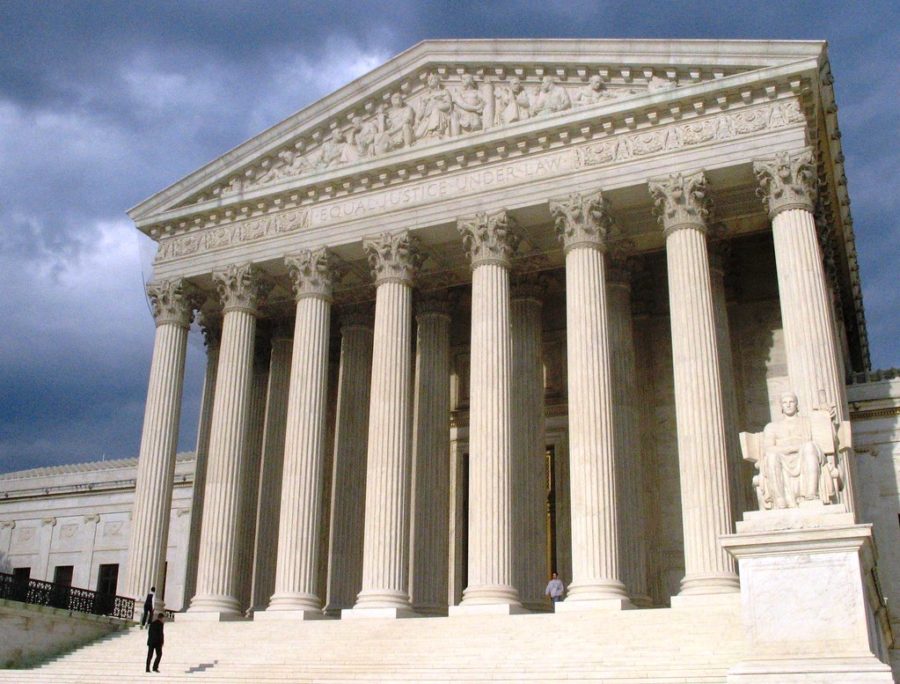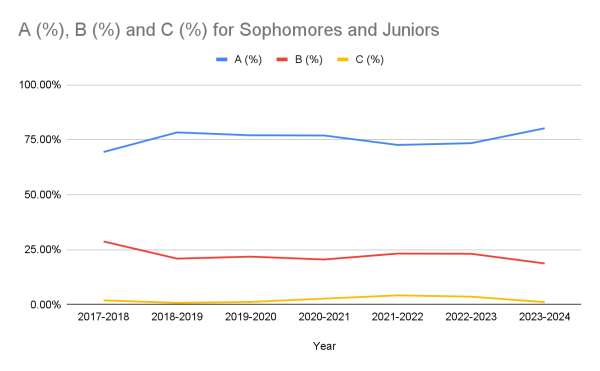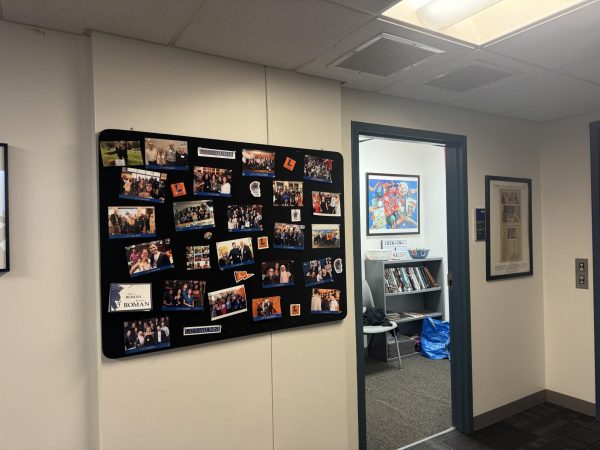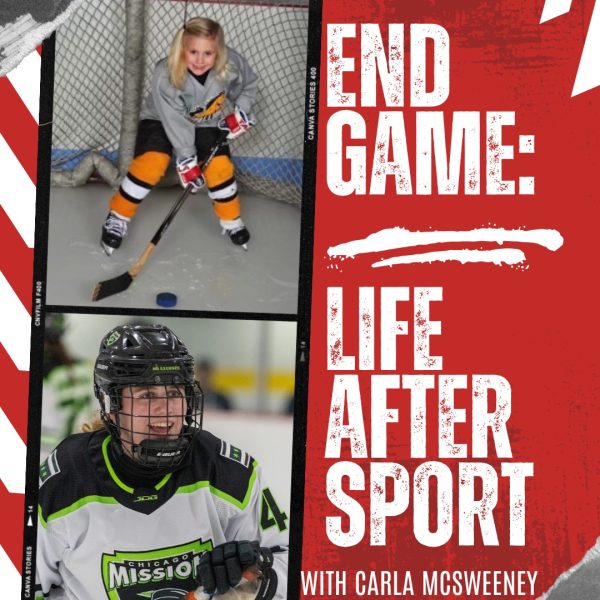Cursing Cheerleader’s Supreme Court Free Speech Case: What Does It Mean for Latin?
On April 28, the U.S. Supreme Court heard arguments in a case that has the potential to change the way schools around the country handle free speech and punishment for off-campus statements. Justin Driver, a Yale Law School professor, has called it “the most momentous case in more than five decades involving student free speech.” But why exactly is this case important, and why should it matter to Latin students?
Mahanoy Area School District v. Brandi Levy centers around Brandi Levy, now 18, who as a freshman failed to make her Pennsylvania high school’s varsity cheerleading team. In an angry moment over a weekend, while she was not on school property, Levy posted a picture on Snapchat of her and a friend giving the middle finger to the camera, with the caption “fuck school, fuck softball, fuck cheer, fuck everything.” Another student took a screenshot of the post and showed it to the coach, who in turn showed it to the school, and Brandi Levy was kicked off of the JV cheerleading team for one year.
Brandi and her family sued the school. Two lower courts ruled in Brandi’s favor, holding that the school violated her First Amendment rights by punishing her for posting profanity on Snapchat while she was off campus.
In a seminal case from 1969 called Tinker v. Des Moines, the Supreme Court ruled that students do not “shed their constitutional rights to freedom of speech or expression at the schoolhouse gate.” But the Court also held that public schools have the right to punish students for speech on school grounds that causes or is likely to cause “substantial disruption” of school operations. This ruling has been the guiding precedent on the issue of students’ free speech for the past 52 years.
However, recently, the subject of student speech has resurfaced partly because of the nation’s focus on accountability in the Internet era. As reported by Reuters, “Many schools and educators, supported by President Joe Biden’s administration, have argued that ending their authority over students at the schoolhouse gates could make it harder to curb bullying, racism, cheating and invasions of privacy—all frequently occurring online.”
American Civil Liberties Union (ACLU) free speech attorney Vera Eidelman is one of the lawyers representing Brandi Levy in the Mahanoy Area School District case. In an interview, Ms. Eidelman said, “This case, in terms of the issue presented, is about students—really young people’s free speech rights. The question is whether young people have to be subject to the same diminished speech rights that they have in schools all of the time outside of school, on social media, at weekend protests, if they’re writing op-eds in their local newspapers, really at any point in their lives when they’re not in school. What is the standard that applies to their speech? And when can the government, specifically their school, punish them for it?”
When asked why the ACLU got involved, Ms. Eidelman said, “We took on the case because it really has the potential to be a landmark case for student speech rights. It’s likely the most important young people’s speech rights case in the last several decades.”
The ACLU is arguing that although Levy’s post was vulgar, it was not an example of speech that involves bullying or harassment, or incites violence, and so it is protected by the First Amendment. Eidelman explained that the precise issue before the Supreme Court is whether a public school can punish a student’s nonviolent, non-harassing speech that occurs off campus. In Levy’s case, the 3rd Circuit Court of Appeals held that the rule adopted in the 1969 Tinker case, which expanded a school’s authority to regulate non-violent, non-harassing student speech if it “substantially disrupts” school operations, does not apply to off-campus speech.
Washington lawyer Lisa Blatt is representing the Mahanoy Area School District, and Deputy U.S. Solicitor General Malcolm L. Stewart, representing the Biden administration, also argued in support of the school district. When arguing in front of the Supreme Court that the school exercised proper authority in punishing Levy, Ms. Blatt said, “off-campus speech, particularly on social media, can be disruptive. The Internet’s ubiquity, instantaneous and mass dissemination, and potential permanence make the speaker’s location irrelevant.”
At the oral argument on the case, Justice Amy Coney Barrett touched on some policy reasons for regulating off-campus speech, such as allowing school officials to discipline harassment, bullying, threats of violence, and cheating. However, she also discussed the potential concern, “including in this case, that schools abuse this authority and that they punish things that maybe don’t cause substantial disruption or political speech or religious speech that they shouldn’t.”
The justices voiced skepticism over whether Levy’s post “substantially disrupted” the school environment. Justice Stephen Breyer commented that if swearing off-campus warrants discipline, “I mean, my goodness, every school in the country would be doing nothing but punishing.”
Stewart and Blatt argued that schools should have the right to punish off-campus speech both to hold people accountabable for racist or homophobic off-campus actions or statements, and to limit cyberbullying, a serious national phenomenon occurring on many social media platforms.
Matthew June, a Latin Upper School history teacher, commented on how, in this case and in all free speech cases involving the Internet, social media blurs the line of on-campus versus off-campus speech. “I do think there should be protections for speech off-campus and whenever possible, but I also wonder if social media is really best considered off-campus,” Dr. June said. “Can we honestly say that there is no overlap between things posted on social media and your daily life at school? No one ever posts or checks their social media while on campus?”
Dr. June also described how the content of student speech can influence the response and potential punishment. “Many administrators and teachers or coaches, as well as parents, might have believed [punishing Levy] was the correct call because the student was being rude and cursing about the school,” he said. “But what if she had been protesting racial inequality at the school? That latter case might have been equally disruptive to daily school operations, but the content of her speech might have changed the overall reaction. And, it seems to me, that is the most important thing to consider when thinking about free speech. I don’t need to respect your opinion, but I do need to respect your right to say it.”
In an opinion piece written by Ken Paulson, the former editor-in-chief of USA Today and the current director of the Free Speech Center at Middle Tennessee State University, Paulson expressed disappointment that “the Biden administration and some public interest groups are not offering full-rooted support for students’ free speech rights, apparently preoccupied by concern about online bullying.” He points out there are other laws in place that are a better way to deter bullying without “substactring rights from the First Amendment.” He wrote, “It’s not [Levy’s] message that led to the punishment. It was the profanity and the distribution to a social media platform, two things that appear to make some school administrators nervous. It’s time for school leaders to recognize that students are not handed freedom of speech along with their diplomas. They are citizens of the United States and have every right to comment on the world around them.”
So how does Latin approach students’ free speech? Latin is a private school, so it is not bound by the courts’ First Amendment rulings that apply to public schools, which operate as arms of the government. Latin is free to make its own rules about what students can or cannot say on or off campus and how they get punished.
When asked about Latin’s rules and policies governing student speech, Mr. Edwards, one of the deans of Latin’s Upper School, pointed to the “student conduct” section of the Student/Family Handbook, which outlines various core principles that students are expected to uphold, including, for example, “striving for personal integrity” and “treating others with dignity and respect.” Mr. Edwards specifically cited the following language: “Any student behavior, on or off campus, which falls outside of these guiding principles or that violates school values in any way that reflects poorly on the Latin school community, can result in disciplinary action.” He added, “The handbook also details the school’s definitions of harassment, bullying, cyberbullying, hate speech, sexual misconduct, and sexual harassment.”
In addition, the Latin School Athletic Handbook includes a code of conduct section stating, “Players are always responsible for controlling their own conduct on and off the field, and are responsible for promoting good sportsmanship.” And the Policies and Procedures for US Athletics states that participation in athletics “carries certain responsibilities on and off the field, on and off campus.”
While Mr. Edwards said he did not know enough about the facts of the Brandi Levy case to determine how that specific situation would be handled at Latin, he said, “Generally speaking, I think we would examine what exactly was said and consider all available context. Was it simply an inelegant criticism of the school? Students are critical of the school all the time, and there are plenty of examples of students who have voiced concerns/criticisms without consequence. On the other hand, was the communication threatening, bullying, harassing, hate speech, biased, and/or unduly preventing another student or students from navigating their school environment? If so, then it would almost certainly merit a response from the school.”
When asked if Latin would likely follow any new standards that might be established by the Supreme Court in the Brandi Levy case, even though the Court’s ruling would not technically apply to private schools, Mr. Edwards responded, “Any new guidelines which inform best practices can (and should) be considered. Whether or not they eventually get adopted as rules at Latin is hard to say with any certainty, but we would do well to at least understand and evaluate them.”
Sophomore Matthew Kotcher, who avidly follows Supreme Court cases and governmental issues, also offered his opinion regarding how Latin should punish off-campus speech. “The question should be if [the speech] is discriminatory, defamatory, criminal, harassment, or hate speech,” Matthew said. “I think students should be able, even encouraged, to challenge the school’s authority in or out of school and freely express opinions, whether popular or not. Bullying or hate speech should never be tolerated. Also, the school doesn’t stop at the schoolhouse door; if a student is on a school trip, representing the school in a competition, that is still school.”
Considering the current political and social climate in both the U.S. and at Latin, where there is a heightened focus on accountability, particularly in the social media world, free speech is a hotly debated topic. While a story about a foul-mouthed cheerleader getting kicked off her high school cheerleading team may seem, at first glance, inconsequential and hardly newsworthy, Brandi Levy’s case is indeed a momentous case that could entirely change the way schools across America approach students’ First Amendment rights. And though Latin has the ability to adopt its own approach to student speech and related disciplinary actions, the Supreme Court’s ruling will undoubtedly spark more conversation about free speech at Latin and potentially shape the school’s future policies in this important area.

McLaine Leik (‘23) is thrilled to serve as The Forum’s Managing and Standards Editor this year! She has been writing for The Forum since her freshman...
























































